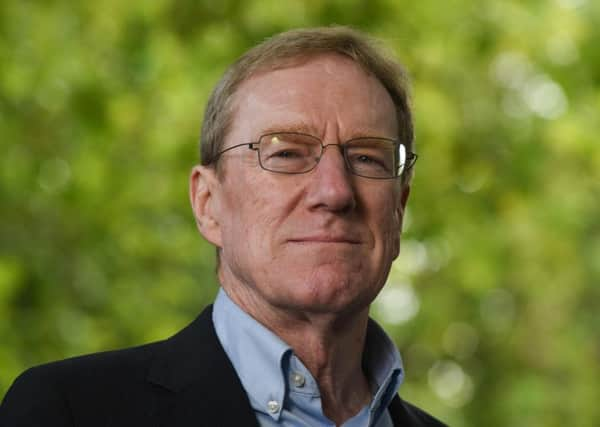Michael Keating and Gerry Hassan on Scottish independence post-Brexit


“One man think-tank” Gerry Hassan, and politics professor Michael Keating were keen to emphasise they were not taking opposite sides in a debate, but participating in an “Enlightenment-style discussion of issues around the topic”.
In one sense, it was a conversation about why there hasn’t been a conversation. “It’s not just Big Ben that’s fallen silent,” quipped Hassan, referring to the “silence” of the SNP leadership since the election. “They have never publicly said we lost and had a post mortem. Losing in politics is quite helpful, you can ask what you did wrong, and how would we do it differently. There has been a failure to talk to Scotland in the years since Indyref.”
Advertisement
Hide AdAdvertisement
Hide AdKeating spoke about the absence of a conversation which goes beyond the yes/no debate. “The majority of people in Scotland want more self-governance, more control over taxes and welfare. The political parties are fighting each other over trivia instead of thinking about the real big issues, to which they don’t have the answers. Most people want the third choice, and the politicians have never offered it to them.”
The Brexit vote, they agreed, complicated matters both for independence and devo-max supporters. While, in theory, it provides a justification for Indyref2, an English Brexit would create a hard border between England and Scotland, creating “a very, very difficult situation”. The Book Festival, it seemed, briefly became a place for a discussion which is not being held in any other part of the political sphere.
As well as a place for debate, the Book Festival is a place to hear stories one doesn’t know about, but should, like the story of the Italian resistance to fascism in the 1920s and 1930s.
Caroline Moorehead’s new book, A Bold and Dangerous Family, tells the remarkable story of a mother and two sons who became important – if unlikely – heroes in the opposition to Mussolini.
Amelia Rosselli, a single mother who went on to become one of the leading Italian playwrights of her generation, raised her sons to follow certain ideals and principles. Nello and Carlo, both bespectacled academics in the 1920s, proved themselves capable of great acts of bravery and resistance as Mussolini’s power became entrenched, including a daring escape from the internment island of Lipari, and a scheme to fly anti-fascist publicity into Italy by dropping it from a plane.
Moorehead was able to draw on thousands of letters written by all three members of the family, revealing close familial bonds and a remarkable degree of sangfroid under stress.
The brothers, both of whom were killed in France in 1937 on Mussolini’s orders, were ordinary people who believed they should not keep silent in the face of the rise of right-wing power.
Advertisement
Hide AdAdvertisement
Hide AdWithout saying anything explicit, it isn’t hard to see the resonances for today.
There was a chance to hear another set of stories unfamiliar to most of us on Sunday evening, with a visit by Margo Jefferson, Pulitzer Prize-winning writer and cultural critic, who has recently published her memoir, Negroland. The event was part of the Guest Selector strand of the festival looking at gender, race and identity fronted by Jackie Kay in association with Roxane Gay, and suffered somewhat both from Kay’s absence and a general absence of explanation of the context.
But none of this could dent Jefferson’s warmth and generosity in reading from her book and talking about her life.
She took us into a very specific corner of what she calls Negroland, that of middle-class black people in the 1950s and 1960s, operating in segregated worlds which “overlapped in a tiny space protected by class”. In this world, there were those who “passed” as white, keeping their race a secret all their lives, and risked being vilified by both groups.